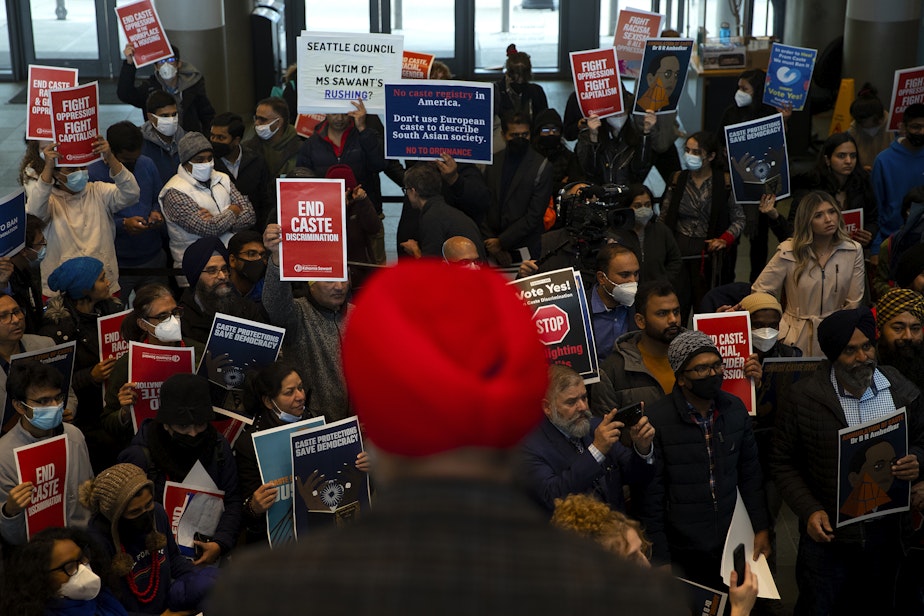Seattle's new caste discrimination ban illuminates a complex civil rights discussion

When the Seattle City Council chose to ban caste discrimination in February, they delved into a complex civil rights issue, one that businesses and institutions across the country are increasingly grappling with, too.
“Caste” is now a protected category in the city of Seattle. That means that much like race, religion, and gender identity, it’s illegal to discriminate against someone on the basis of caste. This could apply when someone rents out an apartment or hires someone for a job.
The system of social hierarchy has existed for thousands of years, primarily in South Asian countries. India’s constitution outlaws caste discrimination, but many members of the Dalit caste, historically the most marginalized group, still report unfair treatment.
Dalits in the United States have reported discrimination in the workplace, in housing, and in social relationships.
Shailaja Paik is Dalit and a professor at the University of Cincinnati whose work focuses on gender, Dalit studies, and human rights. She said that when she came to the United States in 2004, people would interrogate her about her last name or how she was able to immigrate the U.S.
She described the experience of "people prying, making these kinds of judgments without knowing me, without knowing where I come from."
Sponsored
The ways that caste discrimination manifests are often invisible to people existing outside of cultures historically impacted by caste, and the influence of the social system in the U.S. is not universally recognized or agreed upon by South Asian Americans.
After the Cal State University system added caste to its anti-discrimination policy last year, two professors filed a lawsuit arguing the move unfairly singled out Indians and the Hindu religion.
"There's a big disagreement about what caste is and how it plays out," said NPR national correspondent Sandhya Dirks. "And so who gets to control that conversation is really part of what's being contested here."
Seattle has been weighing questions surrounding caste and its complexities as a civil rights issue as more tech workers from South Asia have made homes here.





